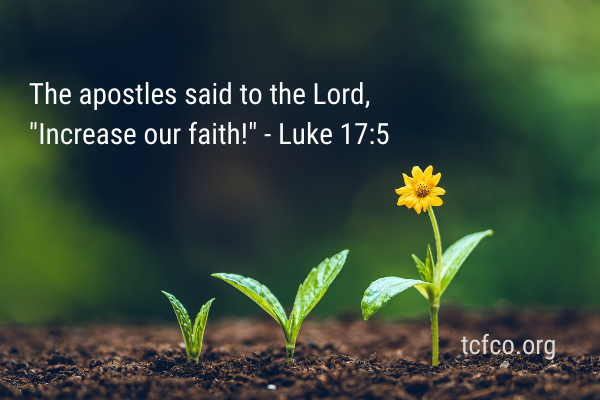1. Faith – Misused and Misunderstood Word
What is the difference between love and lust? In love, the care for the other (often sacrificially) is the central focus, while the physical intimacy aspect is incidental. In lust, the physical aspect becomes the whole point, and the care may not even exist (or even exploitative at the expense of the other). Yet, sometimes the word love gets confused and misused for lust as well.
1.1 Faith to Turn Stones Into Bread
In the same way, the word “faith” is another highly misused and misunderstood word. Luke 4:1–13 and Matthew 4:1–11 describe what is referred to as the three temptations of Christ. The first one is to make bread out of stones – as if the point of faith is nothing more than a self-service by means of miracles. That is why Jesus responded ‘Man shall not live by bread alone, but by every word of God’. Living by every word of God is the primary point of faith, not the bread. The second temptation is the appeal to seek glory, authority, control, and power in this world (and selling one’s soul in the process!).
1.2 Irrationality as Faith
There are some who think that the greatness of their faith is measured by the sheer irrationality of what they believe, or in doing/saying religious stuff ritualistically, or being lazy/foolish/unwise while expecting God to take care, or just being anti-science. These are some of the misuses of the word “faith”.
2. Right Measure of Good Faith?
2.1 Forgiving, Reconciling, Entrusting
What then is the right measure of good faith? In Luke 17:5, the disciples ask Jesus to increase their faith. What is good and desirable about the faith that disciples are asking for? In the preceding verses (Luke 17:1-4), Jesus talks about how we should not be a stumbling block to others by offending people, how to reconcile and forgive people again and again, etc. What is the point in being careful not to offend others, forgiving, reconciling, helping, taking care and mitigating the suffering of others, standing for others, etc? The largely narcissistic world that we live in, may not even understand what this is about. 1 Peter 2:23 talks of Jesus: “When they hurled their insults at him, he did not retaliate; when he suffered, he made no threats. Instead, he entrusted himself to him who judges justly”. 1 Peter 4:19 says, “those who suffer according to God’s will should commit themselves to their faithful Creator and continue to do good”. This then is what faith is about.
2.2 Risky Proposition – For Righteousness Sake
To commit to continue to do good is often a risky proposition, as, in so doing, one ends up face to face with some dangerous people who want to hurt you for doing good (Jesus said to his disciples in Matthew 10:16: “I am sending you out like sheep among wolves”). The temptation then is to stop doing good. To keep doing good and to commit your case to God this way – that is suffering for righteousness’ sake. So a right measure of one’s good faith is one’s willingness to suffer for righteousness’ sake, to continue to do good in the face of challenges, obstacles, hurts and even danger – entrusting oneself to the faithful Creator. It is called faith because it is a choice. A choice for which one is accountable (and salvation is by faith!).

